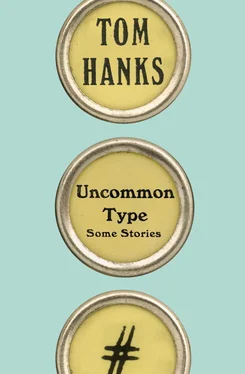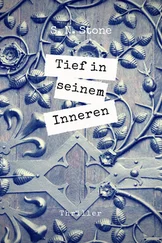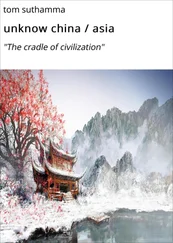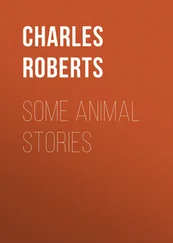Ibrahim reached into his pocket and pulled out a single drachma and slapped it into Assan’s hand. “Here. A perfect shine on perfect shoes.” Assan took a bow and both men laughed.
They walked together to the end of the dockyards, able to mingle with others coming and going. They saw huge cars, trucks the size of houses grinding gears and pulling big loads, and more ships, some much larger and newer than the Berengaria, others rusted buckets. They saw men eating rolls with sausages in them at a kiosk with a sign Assan could spell out—he had been learning the American letters—H O T D O G S. Both Bulgarians were hungry but neither had American money. At the end of the dockyards there was a gate with a guard in an office, but every American walked past without so much as a pause.
“Assan. I will see you in Chee-ca-go one day,” Ibrahim said. Then in English he said, “Tenk choo berry mich.”
“All I did was carry your shit away,” Assan said, taking one cigarette, then giving the pack to Ibrahim. He smoked it while watching his friend walk to the gate, pass the guard with only a nod, and disappear down the road toward the skyline of Philadelphia.
—
Returning to the ship, Assan kept busy all morning, not getting to the galley until the first meal was nearly over and only a few of the crew were around. He collected what bread, vegetables, and soup was still available and sat at a table. The Cypriot with the limp brought him a coffee from the galley.
“America for the first time?” he asked Assan.
“Yeah.”
“America is the top, I tell you. New York, New York, has anything you want. Wait until you see.”
“The big shots. When do they come on board?” Assan asked.
“What big shots?”
“The Americans who search the ship. Looking for Reds. Making big trouble.”
“The fuck you talking about?”
“They make sure our heads match. The chief told me. Big shots come and search the whole ship.”
“Search for what?” The Cypriot went back to the galley for a coffee for himself.
“They check our papers, right? Line us up and check our papers?” Assan had lined up so many times to have his papers checked, it made sense that he’d do the same in America.
“The captain takes care of that shit.” The Cypriot downed half of his coffee. “Hey, I know a whorehouse in New York City. Bring money tomorrow and I’ll get us laid.”
—
Back in his village, Assan had seen black-and-white movies flickering on a white wall. Sometimes the movies were American, with cowboys on horses shooting pistols that threw out long plumes of smoke. He liked best a newsreel that showed factories and construction sites and a new building rising to the sky in a city called Chicago; Chicago had many tall buildings and streets jammed with black sedans.
But New York, New York, looked like a city with no end, a city that threw a haze into the night sky, making the low clouds golden and the water shimmer like colored smoke. A hot wind blew as the ship moved slowly up the wide river, the city passing like a brilliant jeweled curtain; a solid mass of a million lighted windows, bright towers shining like castles, and twin lights of cars, so many cars, buzzing every which way like insects. Assan stood at the rail, the wind rippling his clothes, his mouth open, and his eyes wide.
“Son of a gun,” he said to New York, New York.
—
In the morning, the chief found him at the fuel station. “Assan, put on that striped suit of yours. I want a shave.”
“I have duties, here.”
“I say you don’t, and I’m the chief. Let’s go. And leave your money here so you don’t get pickpocketed on your first day.”
Cars flew down the streets, many of them colored yellow with words printed on their sides, screeching to stops at corners as people got out and different people got in. Lights in boxes mounted on poles flashed red then green then orange again and again. Signs were everywhere, attached to poles, walls, and in windows; so many that Assan stopped trying to make out the letters. Rich-looking Americans walked fast. Americans who didn’t look rich hurried, too. Three black men, with muscles ripping at their sweat-stained shirts, were moving a large wooden crate up a stairway into a building. There was shouting and music and engines and radio voices coming from everywhere.
A young man rode a two-wheeled motor bicycle, roaring by so fast, almost hitting Assan and the chief as they crossed a broad street. Assan had seen a newsreel with policemen on big motored bicycles, but that young man was not a cop. Could anyone ride such a thing in America?
They passed a kiosk selling papers, candy, drinks, cigarettes, magazines, combs, pens, and lighters. Two minutes later they passed another, selling the same goods. It turned out the kiosks were everywhere. A river of moving cars, people, crowded buses, trucks, and even horses pulling wagons flowed along streets that stretched to the edge of sight.
The chief walked fast. “In New York, New York, you have to walk like you are late for an important meeting or thieves mark you.” They crossed street after street and rounded many corners. Assan had draped his blue pin-striped jacket over his arm. He was sweating and dizzy, his head too full of America.
The chief stopped at a corner. “Let me see. Where are we?”
“You don’t know?”
“I’m just thinking of the best way to go from here.” The chief looked around and saw something that made him laugh. “Will you look at that?”
Assan tilted his head and looked, too, up at a window on an upper floor of a building. He saw a flag in the window, posted like a sign—the blue and white flag of Greece with the cross for the church and the stripes for the sea and sky. A man in shirtsleeves and a loosened tie stood in the window, shouting into a telephone and waving a cigar.
“We Greeks are everywhere, no?” The chief laughed again, then held up the palm of his hand. “Look. New York, New York, is a simple city to learn. It is shaped like your hand. The numbered avenues are long and run from your fingertips to your wrist. The numbered streets run across the palm. Broadway is the lifeline and curves the length around. The two middle fingers are the Central Park.”
Assan studied his own palm.
“Now those signs”—the chief pointed to two signs forming an X on a post—“tell us we are at Twenty-Sixth Street and Seventh Avenue. That puts us about right here, see?” The chief pointed to the map of his hand. “Twenty-Sixth and Seventh. Understand?”
“Like my hand. Son of a gun.” Assan felt as though he understood. They continued walking up the shaded side of Seventh Avenue, then turned a corner. The chief stopped at steps that led into a basement barbershop.
“Here’s the place,” he said and stepped down to the door.
The place was for men only, not unlike barbershops in the old country. Everyone looked over at the chief and Assan when they came in. A radio was playing, not music, but a man talking and talking over the sounds of a crowd in the background. Sometimes the crowd would roar or applaud. The shelves were lined with bottles of different-colored liquids. Cigarettes were smoked, so many that two standing ashtrays were overflowing with butts.
The chief spoke English to the older barber—there was another, younger barber, the son perhaps—then took a seat off to the side. Assan sat next to him, listening to the English and looking at the magazines with pictures of crooks with guns and women in tight skirts. Three Americans waited as well, until one of them took a place with the other barber, sitting in a big, comfortable chair made of leather and steel. After a customer paid and said something that made the men all laugh, he walked out the door and up the steps to the street. When another customer was done, he said something funny, too, gave the barber some coins, and was gone.
Читать дальше
